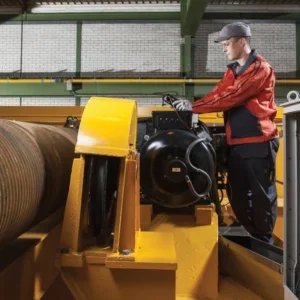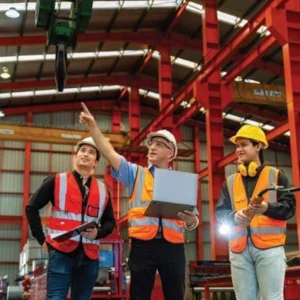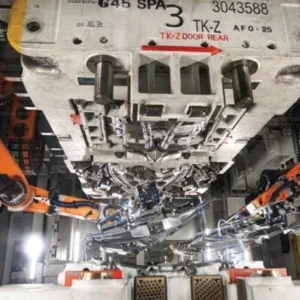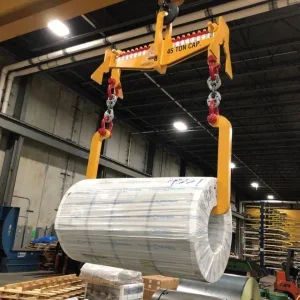On a personal level it was an enjoyable week. There was plenty of sauerkraut, a quick look at Cologne cathedral which is an impressively Gothic, twin-spired masterpiece— I’ll be heading back under my own steam for one of the city’s winter markets at some point—and some good scenery to admire from the train as I worked my way from Stuttgart up to Düsseldorf and back again.
More importantly, it was a very informative week in terms of learning about the different approaches companies take to not only doing business, but also setting up their production operations.
While the key components of hoists are similar wherever they are manufactured, different companies produced different combinations of those components in-house, while sourcing the remainder from external suppliers. Part of that was based on what was available locally, and a lot of the choices were due to how the companies had been operating since their inceptions.
It’s testament to the long industrial history of Germany that many of the facilities I visited could showcase a fascinating range of machinery, from the very latest computer-aided, robotic machining stations through to pieces of equipment that had been in operation for decades. Other than the occasional patch of slightly faded paintwork, though, there is nothing to stop these machines from continuing as they have done for many more generations to come.
Of course, while good machinery can carry on operating almost indefinitely with a bit of oil, care and some change parts, us mere mortals cannot offer the same longevity. Another topic that cropped up in conversation was how to address the experience and knowledge lost when a longstanding operator retires.
It’s a problem in many parts of the world, not just in Germany, but was put into relief by the long histories of many of the companies I visited. When your machinery was built by your predecessors back in the first half of the 20th century, it’s unlikely that you’ll find a manual in PDF form online to help you work it. And while the theory of operating each piece of equipment can be taught, there’s no substitute for hands-on experience.
Again, the different companies had different approaches on tackling this, but it’s fair to say that the German hoist industry seems to be in safe hands for now and for the future. I’ll be including an in-depth report of my visit in next month’s issue of Hoist.
I left Germany two days before the country’s general election—almost every lamp-post I saw featured a poster promoting one of the candidates. The results showed that, just as over here in Britain, central politics had a tougher time that many had anticipated. And, just as in Britain, it remains to be seen how this will affect business.
And just to prove it really is a small world, I stopped to chat to a German busker in Düsseldorf, and to buy a copy of his CD, after his finger-picked guitar caught my attention—he turned out to be one Matthew Kerr, from St Albans, UK






